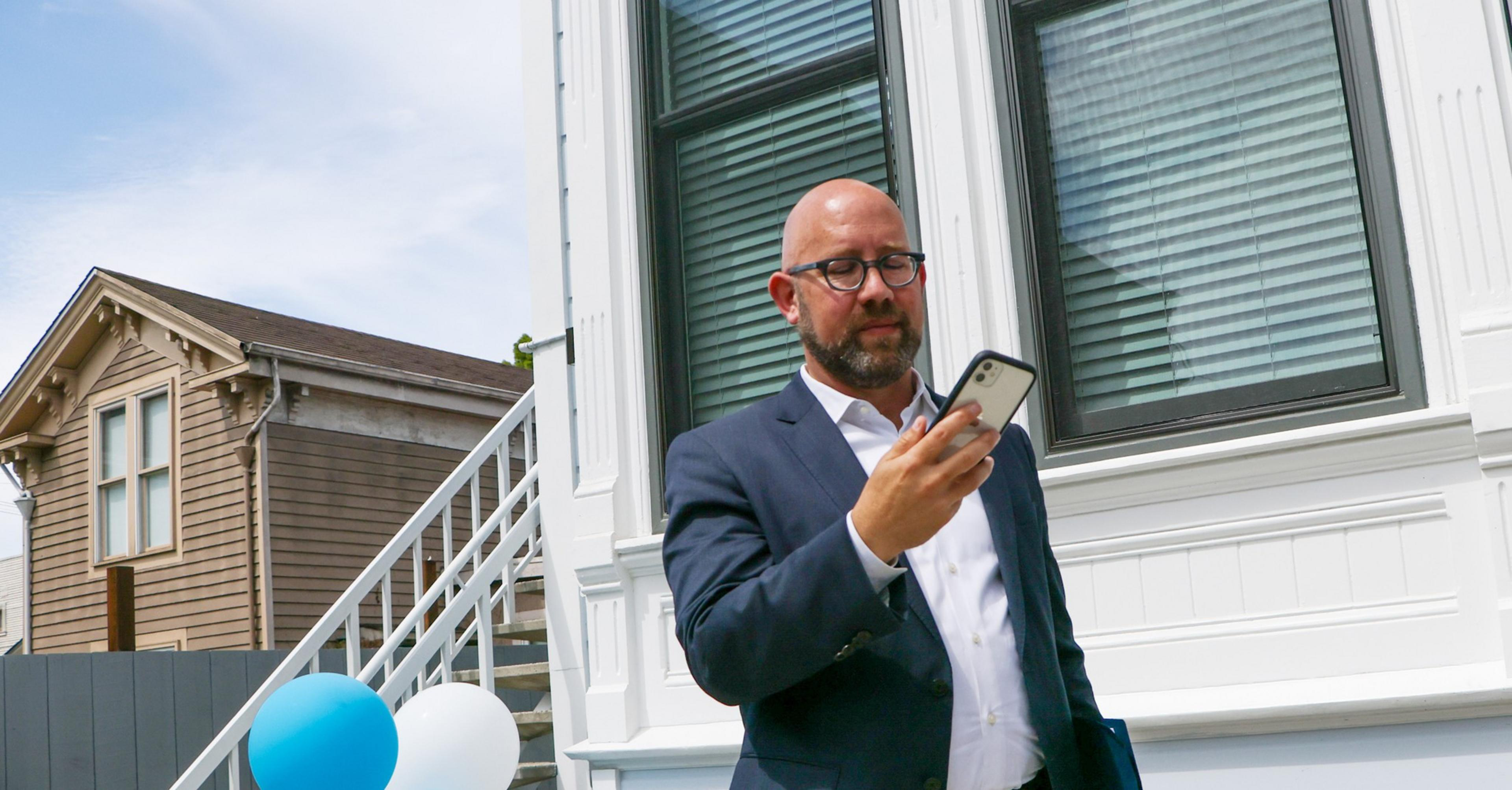On Tuesday, the San Francisco Board of Supervisors faces a debate over a law that bans doing business with companies from a majority of U.S. states and will once again attempt to hold a major nonprofit’s feet to the fire for blocking collective bargaining.
They will also reexamine governance for a long-troubled affordable housing community and receive a homework assignment.
Yes, really.
As always, wonks can seek out the rest in this week’s agenda (opens in new tab).
Debate Over the City’s ‘No-Fly Law’

Section 12X of the city’s Administrative Code prohibits city government entities from doing business with companies based in states with laws that discriminate against LGBTQ+ persons, restrict access to abortion or make it difficult to vote.
After successfully co-sponsoring a bill to exempt public works contracts from 12X, Supervisor Rafael Mandelman has been working to pass a general repeal of the law.
Six supervisors are co-sponsors, and the dialogue over the repeal has been long enough to make passage likely. But expect four votes in opposition, led by Supervisor Shamann Walton, who opposed the bill in committee. Reflecting pushback from labor and other advocacy groups, the proposed repeal will likely spark a long conversation.
The law passed in late 2016 amid growing reactionary fervor nationwide: Around that time, states began passing laws denying LGBTQ+ persons access to medical care, a Georgia Congressman read a Bible verse (opens in new tab) into the record calling for the death of homosexuals, and a gunman killed 50 at the Pulse nightclub in Florida.
Authored by then-Supervisor Scott Wiener, 12X was meant to rally other progressive communities to leverage their economic power against states whose legislatures were passing discriminatory laws.
But recent economic pressures have led policymakers to reconsider whether it’s working. In one recent example, the law played into the costs of installing public restrooms in parks.
Moreover, a recent report from the supervisors’ Budget and Legislative Analyst’s Office found that the law is poorly enforced (opens in new tab).
Saving the Complex

Midtown Park is a 139-unit cooperative housing complex in the Western Addition that the city inherited from the federal Department of Housing and Urban Development in 1968.
Since that time, its unique status and governance (opens in new tab) had prompted successive administrations to let it run itself, with mixed results. In 2014, the Mayor’s Office of Housing and Community Development transferred management to the nonprofit Mercy Housing.
Many residents were decidedly unhappy with the arrangement, as Mercy proceeded to impose means-tested rent hikes on some residents who assumed they were under rent control.
A rent strike ensued, and supervisors stepped in to restore rent control in 2020, by which time Mercy Housing had withdrawn from management.
Supervisor Dean Preston, who represents Midtown Park, has moved to ask the Local Agency Formation Commission to explore new management options for the complex. In the past, the city has used that commission to explore options like public power and banking.
Felton Institute Under the Microscope

Supervisors will hold a special hearing at 3 p.m. Tuesday to examine worker grievances at the Felton Institute, a nonprofit that San Francisco contracts with for a range of behavioral health and other services.
Employees have complained for years about low pay and overwork, as well as attempts by the nonprofit to block union organizing (opens in new tab). Supervisor Myrna Melgar has been attempting to craft a labor peace deal with the nonprofit, which refused to answer questions at a prior hearing.
Ronen: Have Some Homework To Go With Your Homework
Supervisor Hillary Ronen wants her colleagues and board staffers to prepare for what promises to be a very testy budget season with some not-so-light reading.
To that end, she introduced a resolution last week to buy 20 copies of the new book Poverty, by America (opens in new tab), by sociologist (opens in new tab)Matthew Desmond (opens in new tab).
In his book, Desmond argues that the reason that America has so much poverty when compared with other developed nations is that so many Americans now benefit from the exploitation of poor people and that maintaining poverty has become a policy choice.

In introducing the resolution last week, Ronen, who served as budget chair last cycle, admonished her colleagues that “ending poverty needs to be at the forefront of priorities” for the next two fiscal cycles. The city is facing an estimated $780 million deficit over the next two fiscal years.
The assignment appears to be unprecedented. A quick search of past legislation for assignments to read like-minded authors like Thomas Piketty or David Graeber yielded no hits.
But the real question is: Will there be a quiz?
